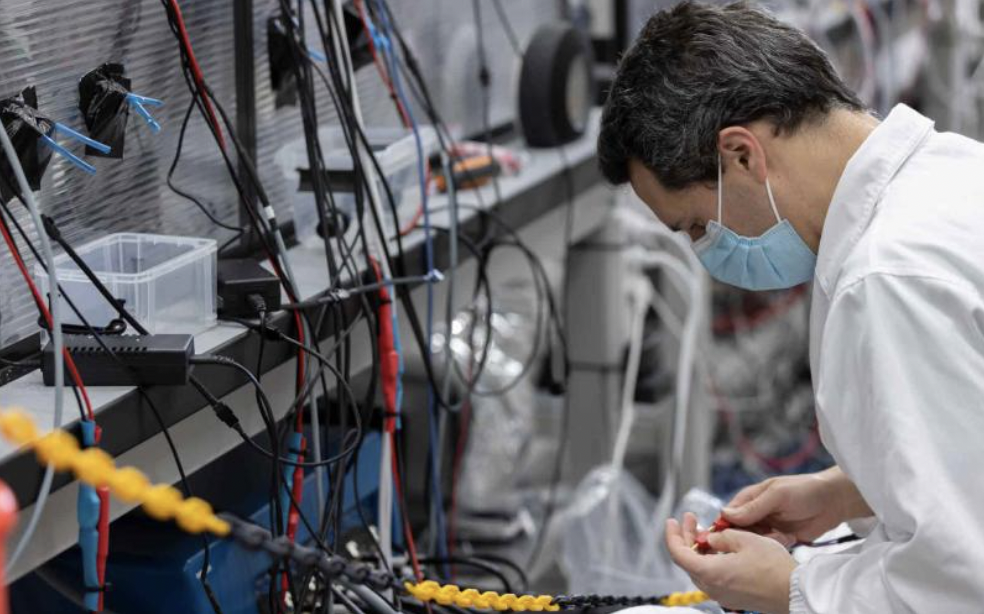Hysata, a company spun off rom the University of Wollongong (UOW), has secured more than AUD 23 million ($14.87 million) from the Australian and Queensland governments to fund a project designed to accelerate the development and commercialisation of its “capillary-fed” electrolyzer cell technology.
The Australian Renewable Energy Agency (ARENA) has committed AUD 20.9 million to help fund the demonstration project, while Queensland government-owned power company Stanwell Corp. is backing the initiative with AUD 3 million. Stanwell will also provide the site and facilities for the field deployment of the electrolyser.
Hysata is developing ultra-high efficiency hydrogen electrolyzer technology that eliminates almost all resistance in the electrolysis process and has the potential to significantly shift the economics of green hydrogen production.
“Existing electrolyzers face energy losses from electrical resistance and gaseous bubbles forming on electrodes, reducing the overall efficiency of the system,” Hysata said. “[The technology] has been proven to produce hydrogen with 95% (41.5 kWh/kg) efficiency, well ahead of incumbent technologies that operate with efficiencies close to 75% (52.5 kWh/kg).”
ARENA said the technology has the “potential to reduce the cost of renewable hydrogen production through reduced electricity inputs … The technology also offers lower balance of plant costs, with reduced electrical resistance resulting reduced cooling requirements. If delivered at scale, these reduced input costs will help lower the levelized cost of hydrogen, making renewable hydrogen a commercially viable energy resource.”
Hysata plans to develop and test a 5 MW unit at its new electrolyzer manufacturing facility in Port
Kembla, New South Wales. The electrolyzer array will then undergo testing and validation before it is relocated to Queensland where it will be installed adjacent to the 1,460 MW Stanwell Power Station near Rockhampton. The site has available land, water and grid connection capacity.
Hysata said initial development of the system is already underway, with the field pilot at Stanwell due to commence in 2025. Hysata Chief Executive Officer Paul Barrett said the project is a pivotal moment in the company’s rapid technological and commercial scaling, as it works towards achieving a 9.4 GW pipeline of signed conditional orders and letters of intent.
“Our plan encompasses the construction of a 100 MW per annum production line, with commercial-scale units
scheduled for delivery in 2025, including the 5 MW electrolyzer unit for Stanwell’s project. And we
will ramp up rapidly to giga-scale capacity thereafter,” he said.
ARENA Chief Executive Officer Darren Miller said the project is a crucial step to enabling purchase orders for the technology.
“This electrolyser technology could be a game-changer for renewable hydrogen,” Miller said. “The demonstration at Stanwell’s site will be key to unlocking commercial demand for Hysata’s product by proving the technology works at scale.”
The new funding builds on AUD 8.98 million awarded by ARENA under the German-Australian HyGATE program, with an additional AUD 9 million contribution from Germany’s Federal Ministry of Education and Research (BMBF).
With the help of the HyGATE grant, Hysata is currently working on the development of a 200 kW electrolyzer system that will demonstrate the key components of the 5 MW commercial-scale demonstration unit.
This content is protected by copyright and may not be reused. If you want to cooperate with us and would like to reuse some of our content, please contact: editors@pv-magazine.com.




1 comment
By submitting this form you agree to pv magazine using your data for the purposes of publishing your comment.
Your personal data will only be disclosed or otherwise transmitted to third parties for the purposes of spam filtering or if this is necessary for technical maintenance of the website. Any other transfer to third parties will not take place unless this is justified on the basis of applicable data protection regulations or if pv magazine is legally obliged to do so.
You may revoke this consent at any time with effect for the future, in which case your personal data will be deleted immediately. Otherwise, your data will be deleted if pv magazine has processed your request or the purpose of data storage is fulfilled.
Further information on data privacy can be found in our Data Protection Policy.